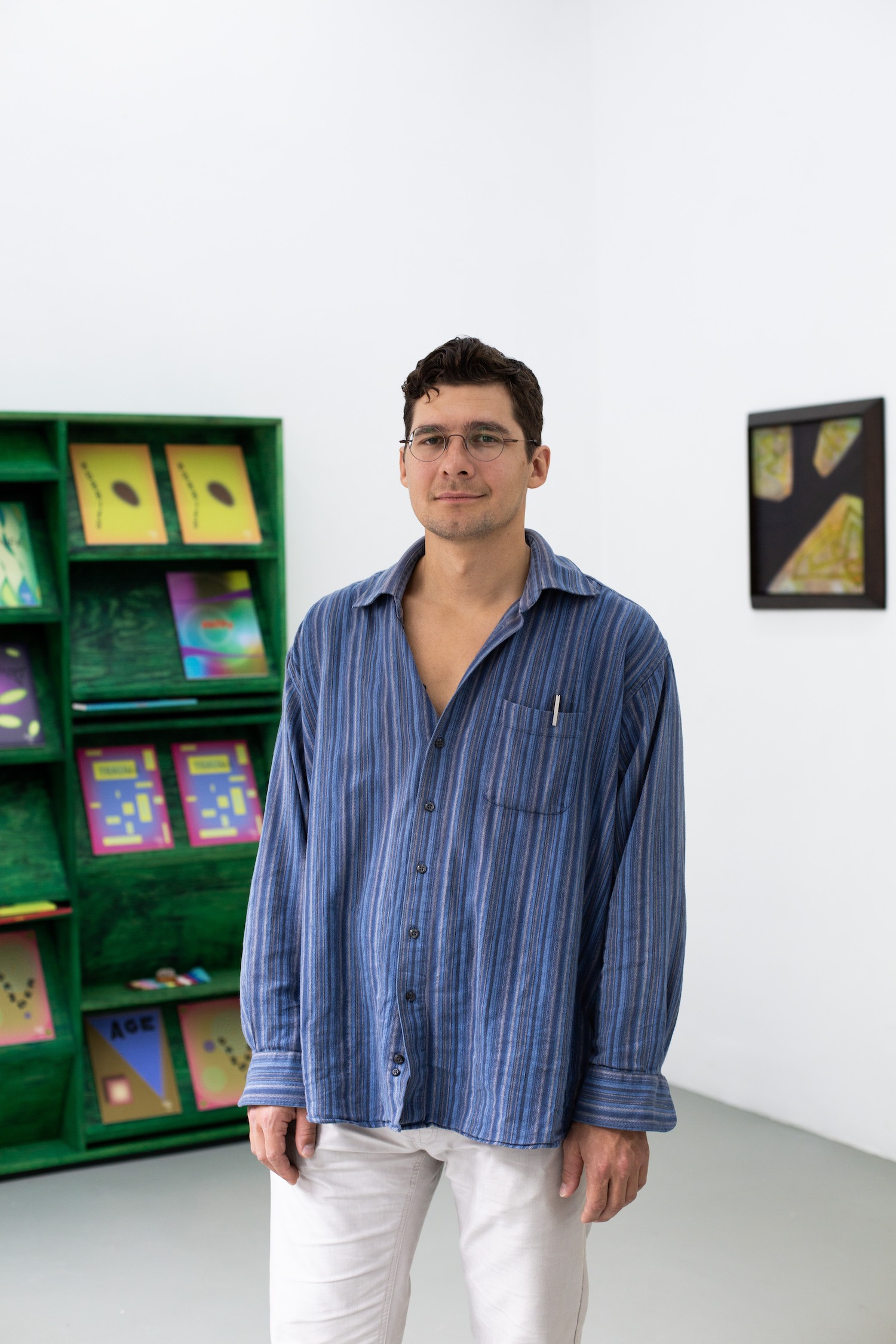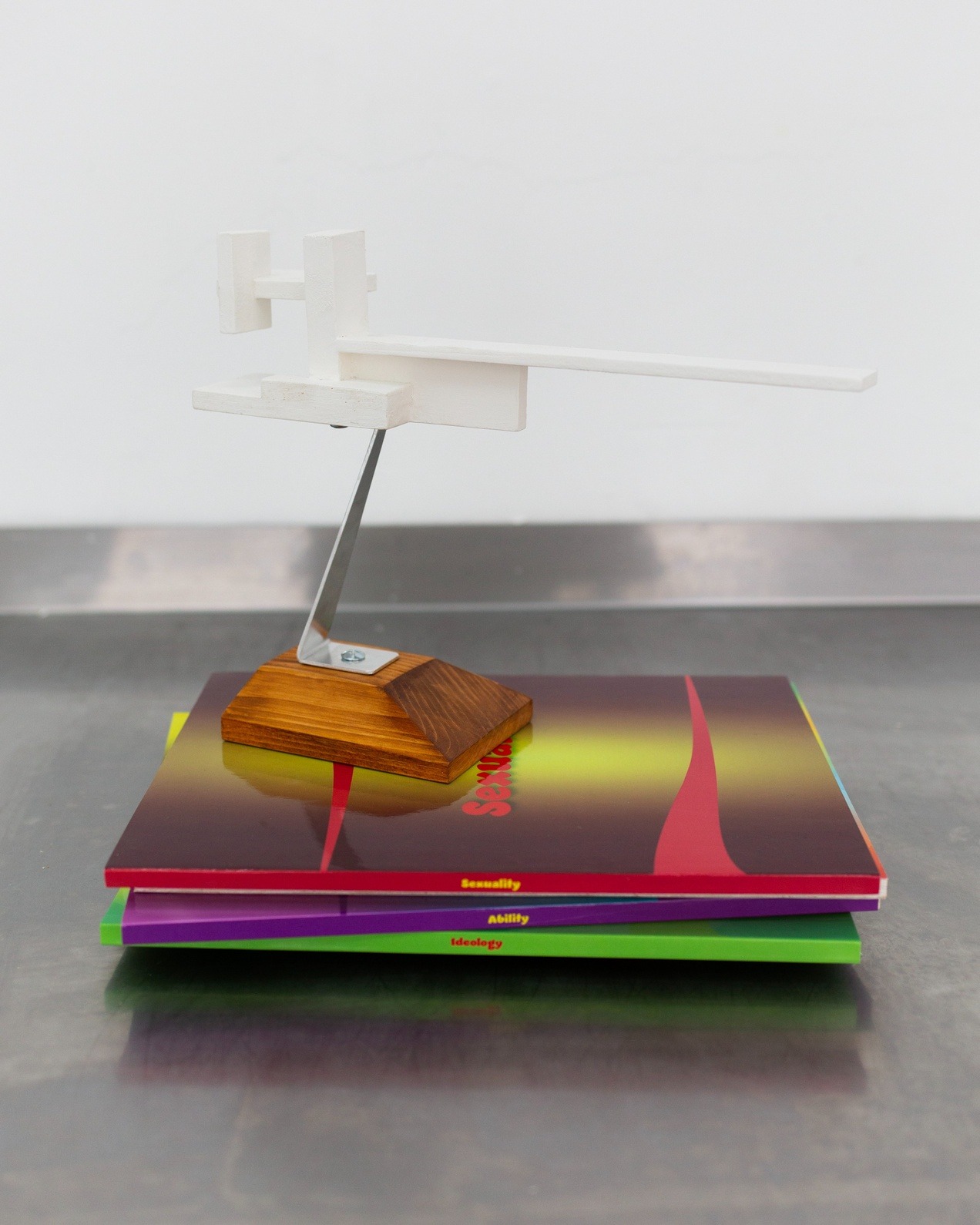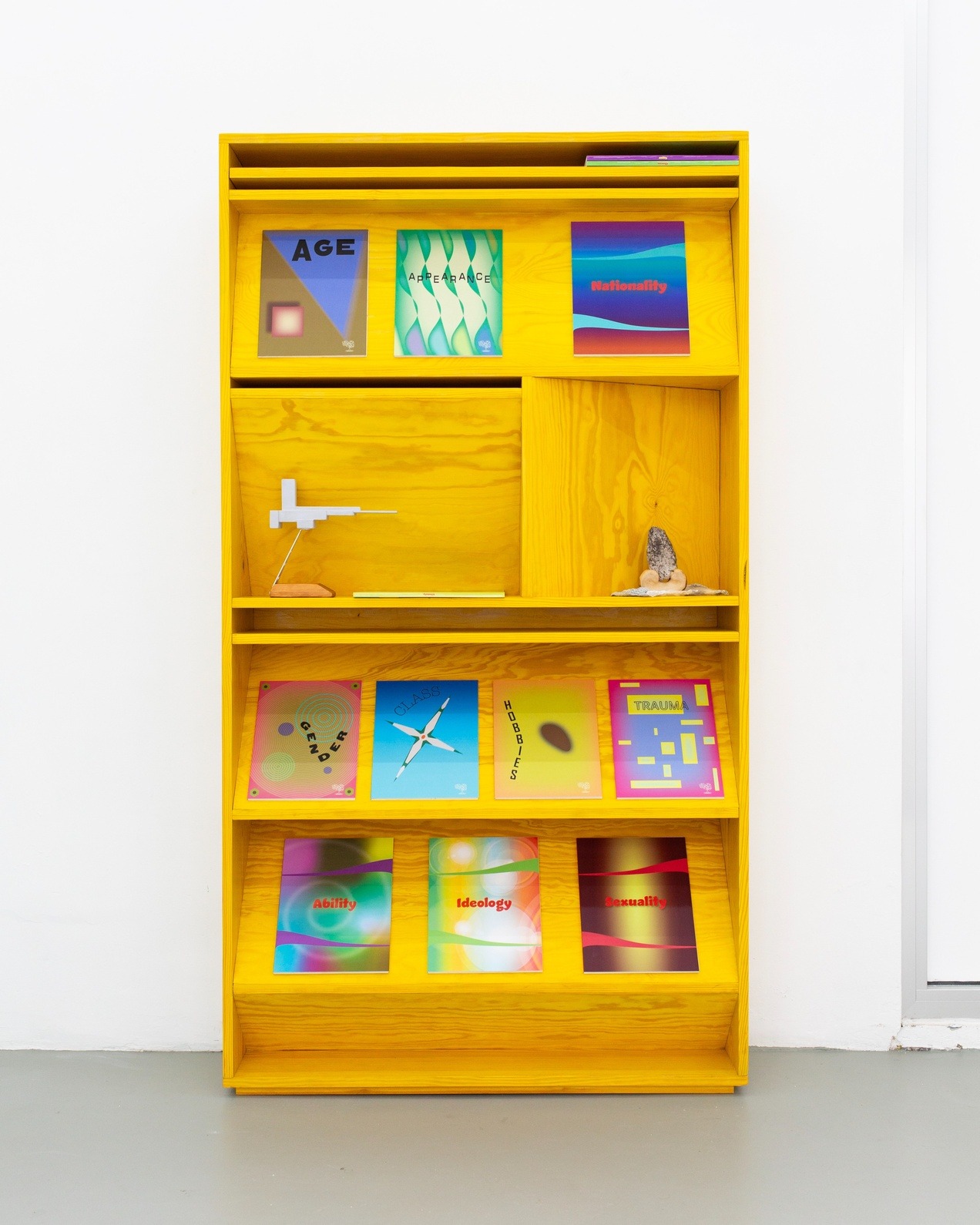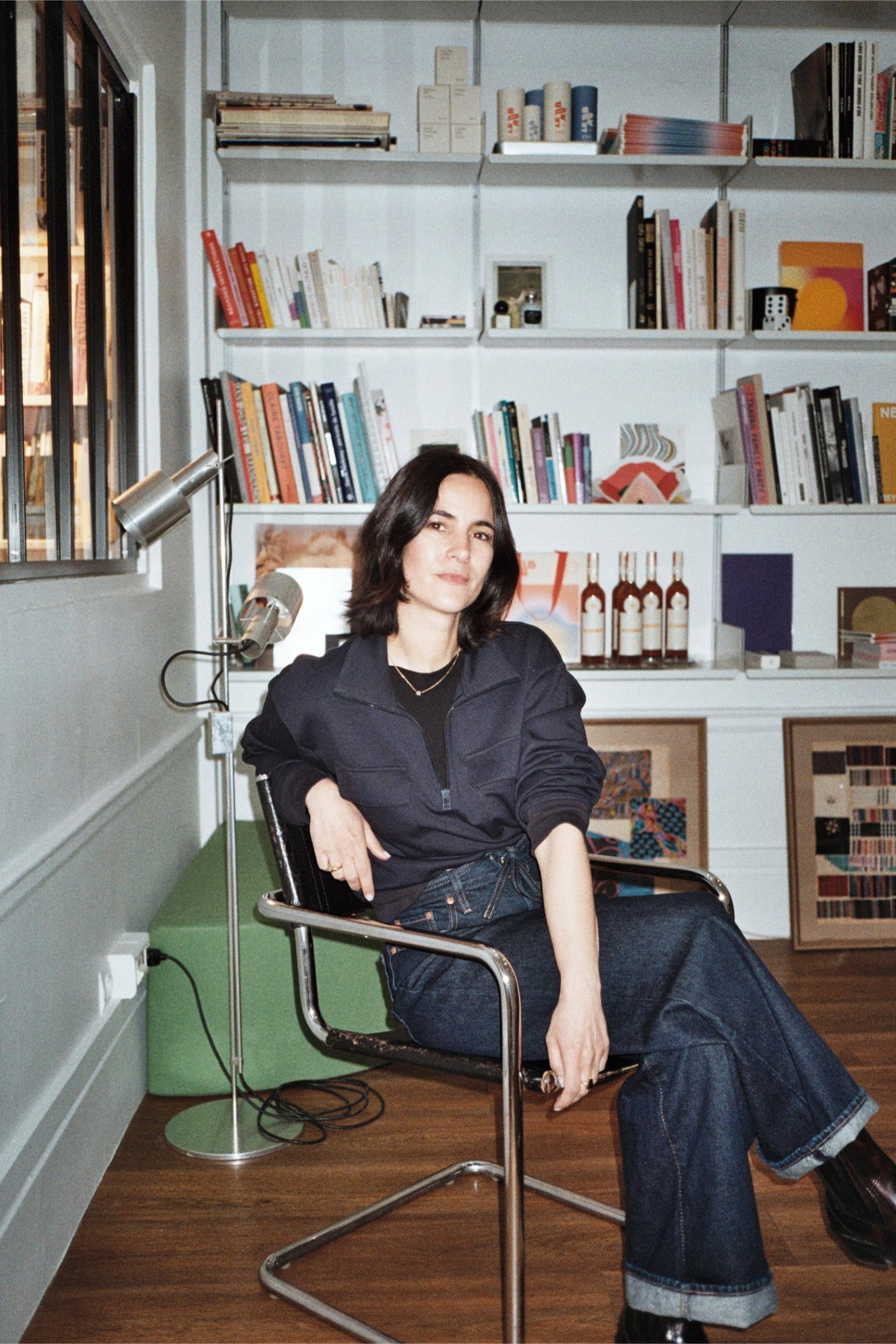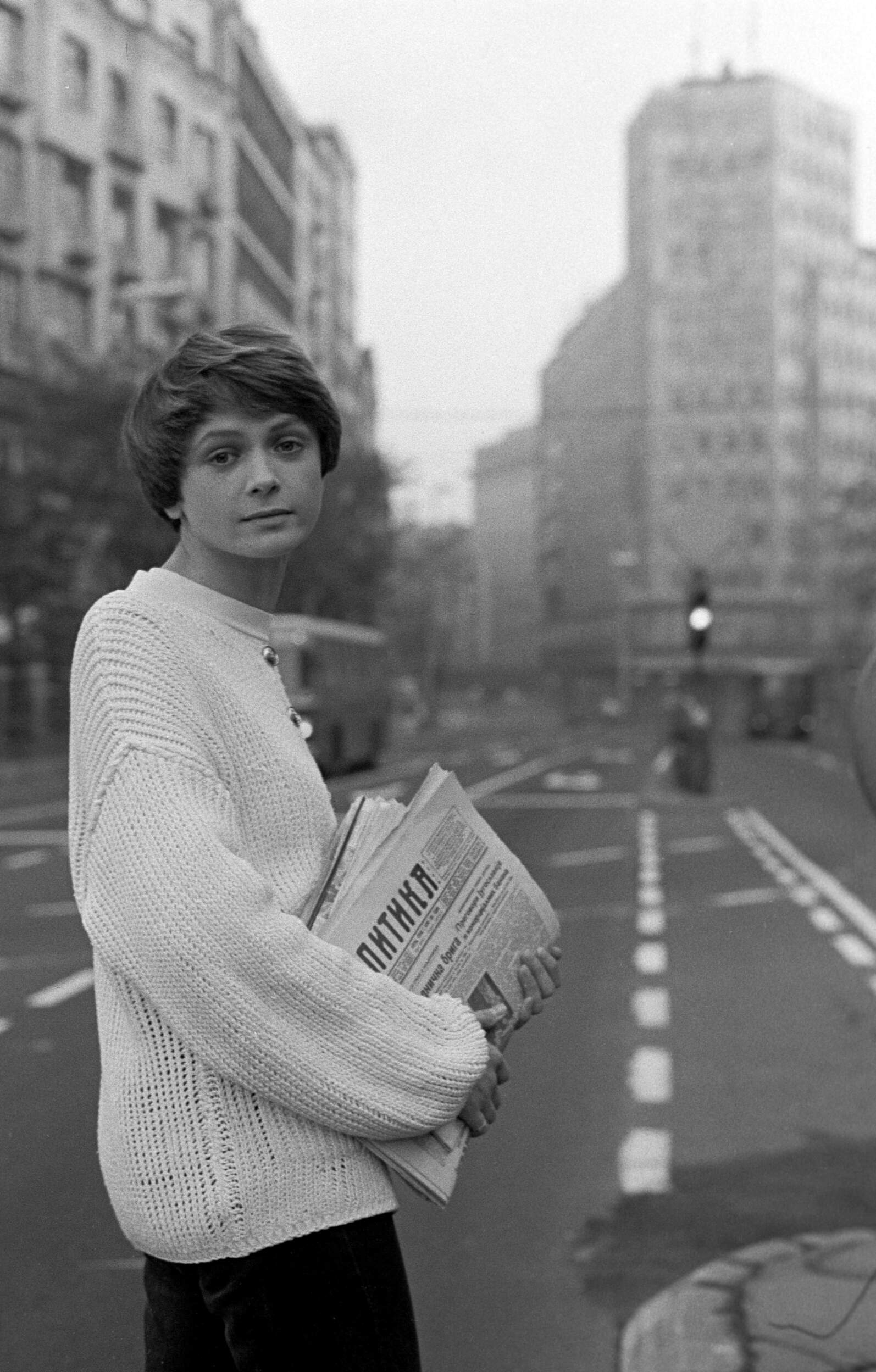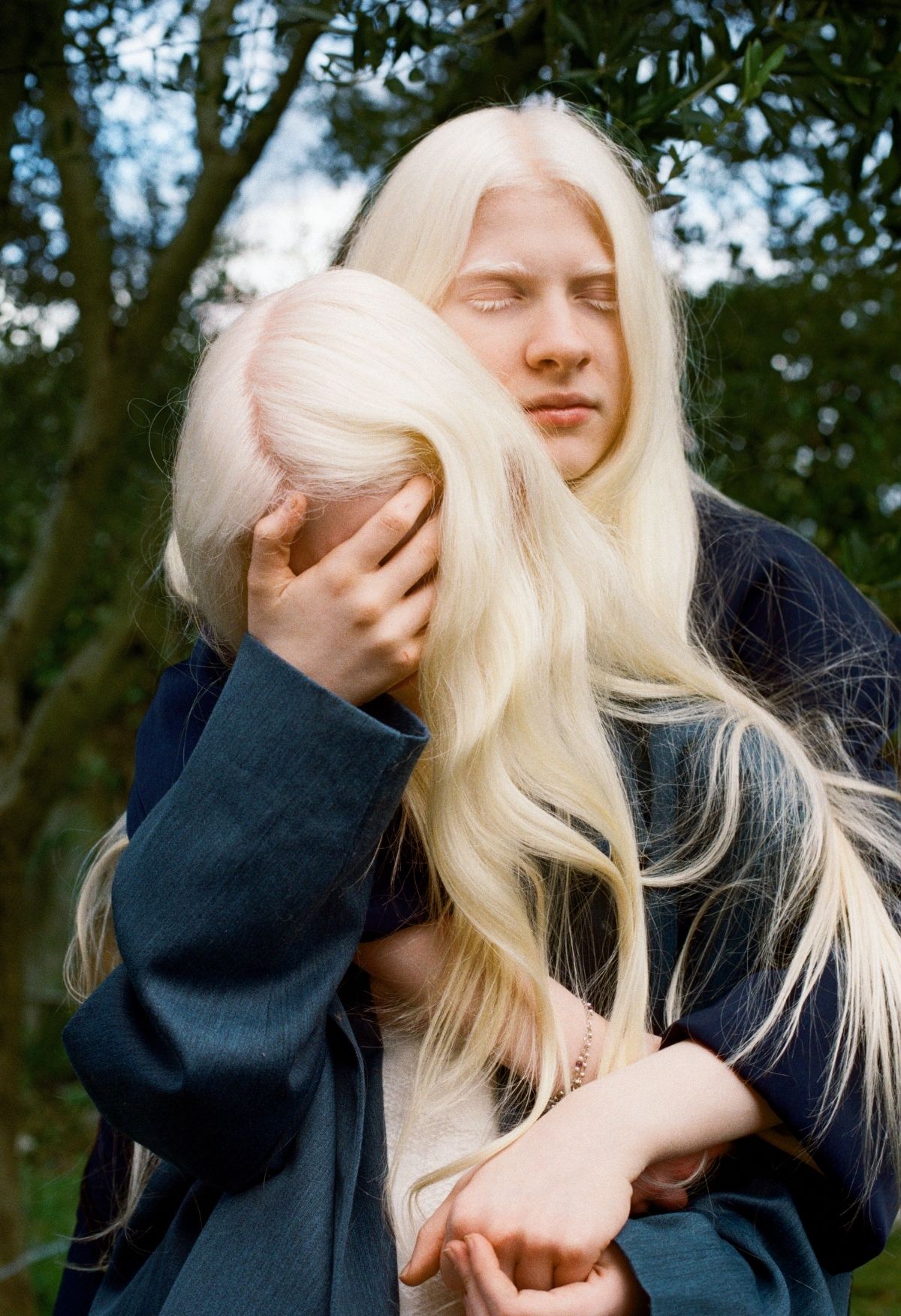After more than twenty years in the art world, I can clearly tell the difference between rising stars and falling ones. Even more so between the comets that blaze through the artistic orbit only to disappear without a trace. But there are also those who play the long game: artists who do not seek the spotlight but walk with steady purpose. Vedran Kopljar (1991, Slavonski Brod) is one of them. A Belgian artist of Yugoslav origin who doesn’t make noise — but makes a difference. Younger artists reference him, while the established ones support him, including the inescapable Luc Tuymans, whose whisper still carries more weight in the Belgian art world than many shouts.
Because of Kopljar, but also because of Pizza Gallery in Antwerp — a space that does not chase prestige but gathers a scene truly pulsing with new ideas — I arrive in Belgium for exactly 24 hours. An artistic blitz visit to Antwerp, the city of diamonds and avant-garde fashion, from Dries Van Noten to Margiela and Demna. I manage to squeeze it in between the opening of the Bergen Assembly in Norway and the preview of the Istanbul Biennial, which, despite political tensions and institutional chaos, still managed to open its doors.
Antwerp, where Kopljar already had a solo show titled MEAN at M HKA in 2024, counts more than sixty registered galleries. His new exhibition, Voyages Apstrakcija, opened this September at Pizza Gallery — a space that functions more like a kiosk structure than a traditional white cube — where visitors step into Kopljar’s pseudo-travel agency without geography.
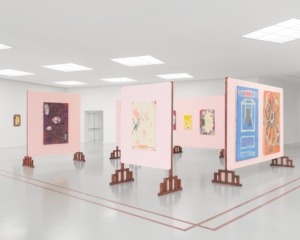
Exhibition MEAN, 2024. Photo: Fabien Silvestre Suzor
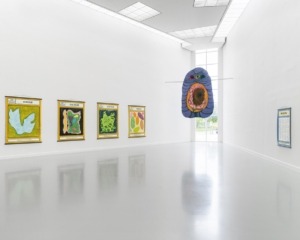
Exhibition MEAN, 2024. Photo: Fabien Silvestre Suzor
In the exhibition Voyages Apstrakcija, the journeys offered are not toward places, but toward concepts — trauma, gender, appearance. What led you to use “tourism” as a poetic language?
As is often the case, it came from an encounter between fascinations and interests that merged into complex thoughts, which then became the material for building a temporary mental world where I could start creating works. In this case, it was the aesthetics of travel agencies that constantly caught my eye and occupied my thoughts. Near my home there is a travel agency that offers only cruises, and it leaves its display lights on at night. So when I go for evening walks, I always come across these mirages of exoticism. They are, in a way, agencies of potential. What they offer are potential life experiences, and as such, they are speculative in nature — which is what draws me to them. I am also interested in the commercial mechanisms that turn cultures and nations into products, through their transformation into a kind of blissful touristic superficiality — through words and images.
These reflections on the aesthetics of travel agencies began to intertwine with my thoughts on identity. For most of my life, identity has been a deeply conflicted and problematic field of thinking. My ideas about it have been developing for years, but the issues never resolve — they mature and proliferate. What constitutes identity? How is identity constructed? What role does language play in the construction of identity? And so on.
At some point, the idea of a non-geographical journey appeared in my mind, and soon after, that of a non-geographical travel agency. That became a temporary world in which I mentally dwelled for several months, which means that everything I encountered, I pulled into that world to see if it fit. In a way, it is as if I build a mental nest — one that I eventually leave, but whose memory remains as an experience, because it becomes intertwined with my life.
Your signature “(& parents)” feels like a quiet yet radical decision. Is it a gesture of love, politics — or something else?
It is a more accurate representation of my artistic practice. It offers a certain transparency, yet as a name it still retains poetic opacity. It refers to the idea of a family business and its potential — but this time, that potential is turned in the opposite direction. Since my childhood, my parents have run a constantly changing family business — first in technical consulting, and later, for the longest time, a grocery store in Hoboken specializing in Balkan products.
That name also allows me to speak about the privilege I have, which is having extraordinarily loving and supportive parents, without whom my practice would not be possible. In our family, no one questions too much whether something is “normal” or not — we simply do things and accept them if they feel right.
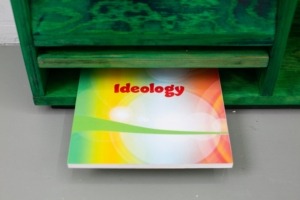
Photo: Thor Salden
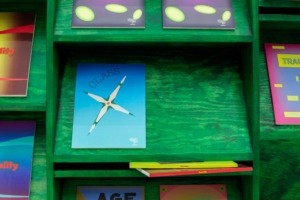
Photo: Thor Salden
In a world where artists increasingly turn themselves into personal brands, you choose distance and structure. Is that a strategy — or your version of power?
Perhaps it is not so much a strategy as an adaptation to this “world” — a way for me to function and be tolerated in a manner I can psychologically and emotionally withstand. Many things can be called powerful, and it is possible to see this as a form of power, but at its core, it is about hopeless attempts and small tricks to at least slightly subvert and dilute the imbalance of power.
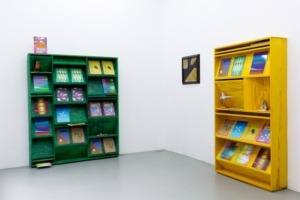
Photo: Thor Salden
Your paintings function as introspective forms — neither landscapes, nor objects, nor bodies. What is the process like when you turn a thought into color?
We have spoken a lot about structures, mechanisms, and so on… Here we reach a point where we can talk about the joy of doing and about opacity. Once I create a conceptual framework, I can enter it in a completely different form. I become a painter, designer, sculptor, performer… I apply these artistic forms within my conceptual practice.
This part of my work functions almost like a hobby, something I do out of pure joy. For example, when I paint, I enter a state similar to when I play basketball, without conscious thought, fully immersed in the act. There is nothing as relaxing and rewarding as losing the inner voice and becoming the act itself.
I would never want to lose the opacity and joy of being an amateur. Amateur in the sense of someone who does something out of love and enjoyment of the act itself. But at the same time, I am a professional. My parents often tell me, “You can’t have your cake and eat it too,” but I always try to have both.
